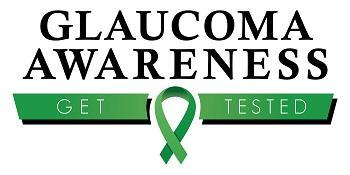
It's the perfect time to become more aware of this common “vision thief”.
Glaucoma is a group of eye diseases that can damage the optic nerve. Glaucoma is the leading cause of irreversible blindness, affecting more than three million Americans. With January being National Glaucoma Awareness month, we want to provide you with information about this condition so you know how it could affect your vision.
Preventive Care is the Best Medicine
Preventive medicine is the only way to catch problems early on before they cause more serious issues. While the start of the New Year also brings up thoughts of health and steps to staying healthy, it’s also the perfect time to raise awareness about common problems that are often overlooked such as glaucoma.
Keeping up with your annual wellness checkups ensures that you remain healthy and that if problems do arise we can detect and treat them immediately. Talk to your family and friends about doing the same, especially if you have a loved one that is at risk for glaucoma.
While visiting your eye doctor once a year for regular exams is the best form of prevention you can also come into our office for care. If you are experiencing any eye problems you can always give us a call. If we believe that you might have glaucoma or other eye problems that warrant a deeper look then we can refer you to an eye doctor for treatment.
Symptoms of Glaucoma
The symptoms you experience will depend on the type of glaucoma you are dealing with. If you develop closed-angle glaucoma (CAG) you may notice mild symptoms at first, such as intermittent blurry vision. If left untreated, these episodes of blurry vision will last longer and may also be accompanied by halos or redness. Blurry vision can also make you feel sick to your stomach.
The most common type of glaucoma is open-angle glaucoma (OAG), which affects both eyes. Just like with CAG, your vision will get worse gradually so you may not notice symptoms right away.
Treating Glaucoma
Since glaucoma can’t be cured only managed it’s important that you catch the problem as soon as possible and treat it to prevent irreversible damage to the optic nerve. Medication can be used daily to manage your condition and to prevent damage from getting worse. In some cases, laser treatment or surgery may be necessary.
If you are concerned about changes in your vision or other problems you are experiencing the medical team at Neighborhood Primary Care can help. Call us today at (248) 690-9181 to schedule an evaluation.
The information is provided to you by Dr. Joe Gorz at Neighborhood Primary Care.
